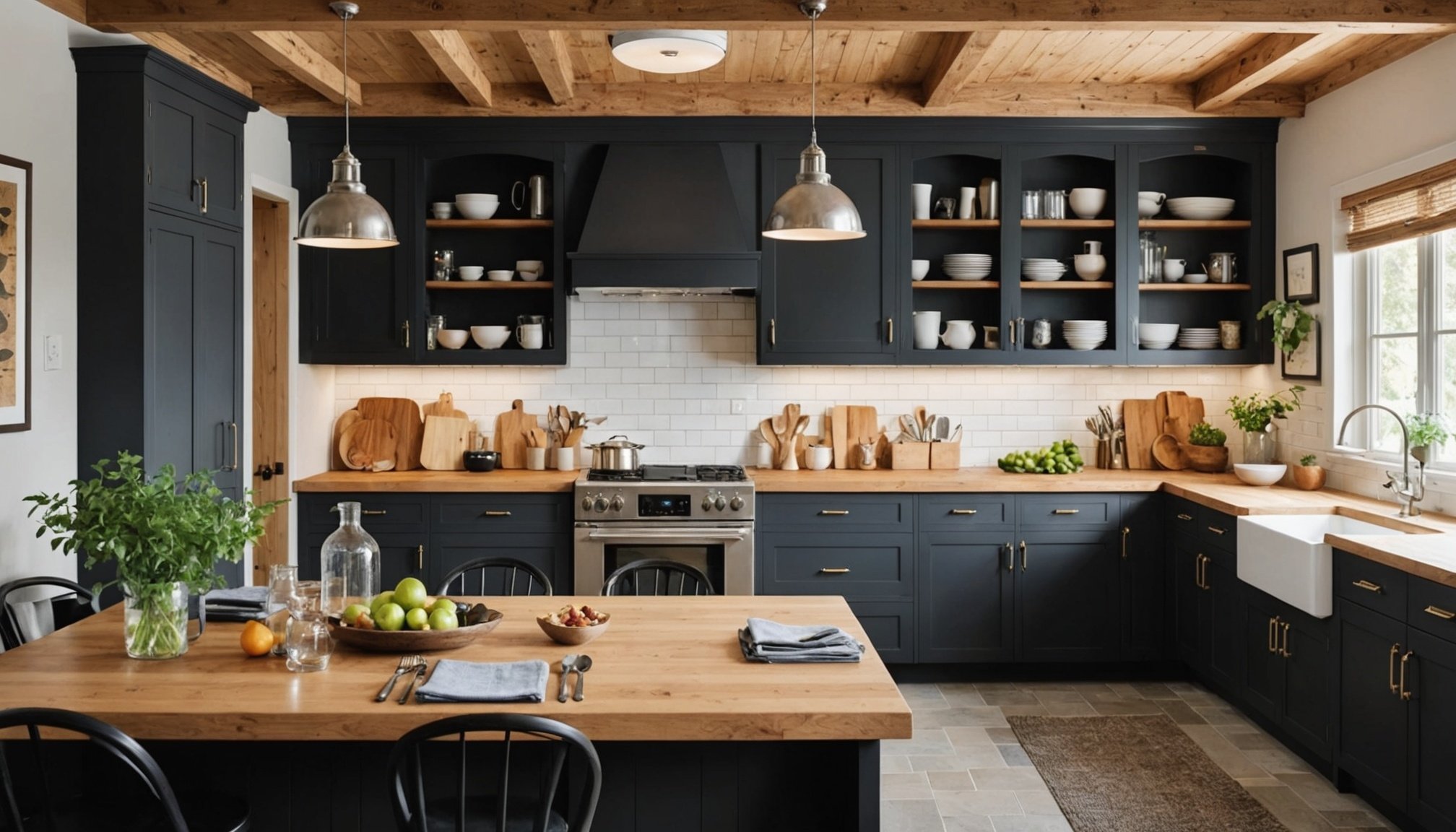Understanding Zero-Waste Living
Adopting a zero-waste approach is central to transitioning to a more sustainable lifestyle. The principles of zero-waste living revolve around minimizing waste by curtailing consumption, reusing materials, recycling whenever possible, and composting organic waste. These habits aim not only to reduce landfill waste but also promote a sustainable living mindset. The motto “Refuse, Reduce, Reuse, Recycle, and Rot” encapsulates these steps, offering a structured path towards cutting down household waste significantly.
The benefits of embracing a zero-waste lifestyle can be profound. Beyond the obvious environmental benefits, individuals may experience personal growth through heightened awareness and responsibility. Economically, purchasing less and focusing on reusable products often leads to savings. The added benefit is an eco-friendly lifestyle that nurtures simpler, more deliberate living choices.
Additional reading : Essential native plants to revitalize your urban garden into a vibrant wildlife sanctuary
An essential part of adopting this lifestyle is reimagining the role of the kitchen. As a central hub of activity and waste production, incorporating waste reduction strategies in the kitchen is key. From meal planning to intelligent food storage, a zero-waste kitchen can greatly support overall sustainability efforts. Prioritizing these practices fosters not only environmental benefits but also a greater sense of personal contribution to ecological efforts.
Innovative Kitchen Layout Designs
Transforming a kitchen into a sustainable space can yield significant ecological benefits. Key features of sustainable kitchen design include the use of eco-friendly layouts that prioritise functionality and sustainability. By optimising space for waste separation and recycling, homeowners can seamlessly integrate environmental consciousness into their daily routines.
In the same genre : Elegant drawer organizer styles that enhance classic shaker kitchen aesthetics
Space Optimisation for Waste Separation and Recycling
A well-thought-out kitchen design should allocate designated areas for sorting recyclables and compostables. Consider incorporating built-in compartments within cabinets or under-counter bins. This not only streamlines the recycling process but also encourages consistent waste management habits.
Incorporating Natural Elements and Light into Design
Natural light and elements play crucial roles in eco-friendly layouts. Strategically placed windows or skylights can reduce dependence on artificial lighting, fostering energy efficiency and creating a vibrant atmosphere. Using natural materials such as bamboo or reclaimed wood for cabinets and countertops can enhance the kitchen’s aesthetic while supporting sustainable practices.
In situating these elements, planners should focus on easy access to waste disposal features and functional workflow, ensuring the kitchen remains a practical space. By embracing these design philosophies, individuals can effectively transform their kitchens into models of kitchen transformation that support broader sustainable living ambitions.
Eco-Friendly Materials and Appliances
Creating a sustainable kitchen is about choosing the right sustainable materials and eco-friendly appliances. These choices not only benefit the planet but also offer long-term cost efficiency in daily operations.
Choosing Sustainable Countertops
When selecting countertops, materials like bamboo and recycled glass provide eco-friendly alternatives. Bamboo, for instance, is a renewable resource that grows quickly and has a lower environmental impact compared to traditional materials. Recycled glass countertops blend beauty with sustainability, using repurposed materials to reduce waste.
Selecting Energy-Efficient Appliances
Opt for energy-efficient appliances labelled with high Energy Star ratings. Refrigerators, dishwashers, and ovens with these certifications consume less energy, reducing your household’s carbon footprint and energy bills. Advanced models often include features such as smart technology, which can further optimise energy use.
Eco-Friendly Flooring Options
For green kitchen products like flooring, consider cork, reclaimed wood, or linoleum made from natural materials. Cork is durable, biodegradable, and soft underfoot, making it a comfortable choice. Reclaimed wood adds character and reduces the demand for new timber, embracing the principles of reuse central to zero-waste philosophy.
Practical Tips for Reducing Kitchen Waste
Reducing kitchen waste is an essential step towards achieving a sustainable lifestyle. Well-structured strategies can significantly minimize unnecessary landfill contributions. Begin by focusing on meal planning to ensure efficient usage of ingredients and leftovers. Planning meals allows for accurate purchasing, lowering the chance of food going to waste, and saving money.
Composting solutions are another powerful tool in managing kitchen waste. Implementing a compost bin under the sink can turn organic waste like fruit peels and vegetable scraps into nutritious compost for gardens. Easy to use and practical, these bins integrate seamlessly into kitchen routines, reducing the need for chemical fertilizers.
Integrating reusable containers into your kitchen arsenal further supports waste reduction. Opt for glass or stainless-steel containers over single-use plastics to store food. Available in various sizes and shapes, they make meal prep and organization simple while reducing plastic waste.
Lastly, explore packaging alternatives like beeswax wraps or silicone bags. These eco-friendly options replace cling film and sandwich bags, further minimizing kitchen waste. By embracing these strategies, you’re not just cutting waste, but fostering a sustainable living ethos within your household.
Incorporating Edible Gardens in Kitchen Design
Incorporating a kitchen garden into your home not only boosts sustainability but also enhances the joy of growing and consuming your own produce. Urban gardening is an innovative way to utilise limited spaces effectively, providing fresh herbs and vegetables within arm’s reach.
Benefits of a Kitchen Garden
A kitchen garden offers numerous benefits, such as fresh, readily available ingredients and reduced dependency on store-bought produce. Growing your own food reduces carbon footprints linked to transportation and packaging, aligning perfectly with an eco-friendly lifestyle. Plus, it provides engaging activities for the family, fostering a deeper connection to food sources and methods.
Design Ideas for Small Spaces
Small spaces can be transformed into productive gardens with vertical planters, window boxes, or countertop containers. These designs maximize available space and integrate seamlessly into existing kitchen layouts. Choose containers that match your aesthetic, and consider a drip irrigation system for effortless maintenance.
Plant Selection for Beginners
For novice gardeners, consider starting with easy-to-grow plants like basil, mint, or lettuce. These thrive in limited sunlight and compacted areas, making them ideal for any urban gardening venture. As confidence grows, expand your selection to more challenging options. This approach not only embellishes your kitchen but enriches your cooking experiences.
Real-Life Case Studies and Inspirational Stories
Exploring real-life case studies offers tangible insights into zero-waste kitchens. Many families have successfully transformed their spaces into examples of sustainable living, showcasing inventive and practical applications of eco-friendly principles.
Take the innovative kitchen of the Barker family, whose kitchen transformation journey is inspiring. They focused on integrating composting strategies and utilizing every bit of space effectively. By adopting intelligent waste reduction practices, such as meal planning and composting, they have significantly minimized their landfill waste. Their approach highlights how thoughtful layout choices can facilitate a zero-waste kitchen, emphasizing the importance of layout design that accommodates sorting and composting seamlessly.
At the community level, cooperatives like Green Leaf Kitchens demonstrate how collective efforts in promoting sustainable living examples can amplify the impact of individual actions. By organizing workshops and sharing resources, they cultivate a culture of eco-friendly practices that inspires others to follow suit.
These stories reflect how real-world adaptors of zero-waste principles balance aesthetics, functionality, and sustainability. Learning from their experiences provides invaluable guidance for anyone looking to embark on a kitchen-focused sustainability journey. The key takeaway is the power of community and shared knowledge in advancing towards an eco-friendly lifestyle.
Resources for Further Exploration
Discovering sustainable living resources helps expand knowledge and inspire changes in your eco-friendly journey. Engaging with eco-friendly guides and networks accelerates learning and application in transforming your kitchen and lifestyle.
Recommended Books and Websites
Dive into comprehensive guides that offer insights into sustainable kitchen practices. Books such as “Waste-Free Kitchen Handbook” by Dana Gunders and “Zero Waste Home” by Bea Johnson are excellent starting points. Explore websites like The Zero Waste Chef, which provides a plethora of kitchen design inspiration and practical tips for reducing kitchen waste.
Online Communities and Forums
Join online forums like the Zero Waste subreddit or Facebook groups dedicated to sustainable living. These platforms are invaluable for sharing experiences, gaining support, and exchanging ideas on innovative kitchen layout designs. Engaging with these communities amplifies your learning and connects you with like-minded individuals passionate about sustainable living.
Workshops and Local Initiatives
Participate in local workshops and initiatives focused on sustainable kitchen practices. These events offer hands-on learning experiences, enabling you to apply techniques such as urban gardening and composting directly in your kitchen. Connecting with local groups often leads to collaborative opportunities that further enrich your journey towards an eco-friendly lifestyle.











